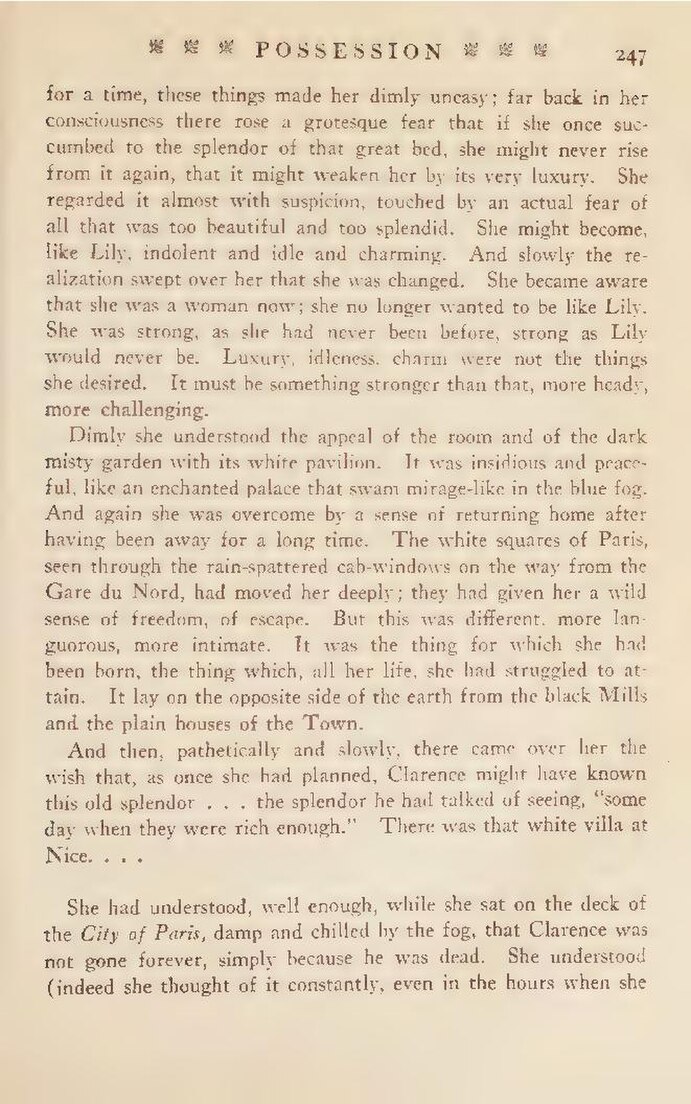for a time, these things made her dimly uneasy; far back in her consciousness there rose a grotesque fear that if she once succumbed to the splendor of that great bed, she might never rise from it again, that it might weaken her by its very luxury. She regarded it almost with suspicion, touched by an actual fear of all that was too beautiful and too splendid. She might become, like Lily, indolent and idle and charming. And slowly the realization swept over her that she was changed. She became aware that she was a woman now; she no longer wanted to be like Lily. She was strong, as she had never been before, strong as Lily would never be. Luxury, idleness, charm were not the things she desired. It must be something stronger than that, more heady, more challenging.
Dimly she understood the appeal of the room and of the dark misty garden with its white pavilion. It was insidious and peaceful, like an enchanted palace that swam mirage-like in the blue fog. And again she was overcome by a sense of returning home after having been away for a long time. The white squares of Paris, seen through the rain-spattered cab-windows on the way from the Gare du Nord, had moved her deeply; they had given her a wild sense of freedom, of escape. But this was different, more languorous, more intimate. It was the thing for which she had been born, the thing which, all her life, she had struggled to attain. It lay on the opposite side of the earth from the black Mills and the plain houses of the Town.
And then, pathetically and slowly, there came over her the wish that, as once she had planned, Clarence might have known this old splendor . . . the splendor he had talked of seeing, "some day when they were rich enough." There was that white villa at Nice. . . .
She had understood, well enough, while she sat on the deck of the City of Paris, damp and chilled by the fog, that Clarence was not gone forever, simply because he was dead. She understood (indeed she thought of it constantly, even in the hours when she
